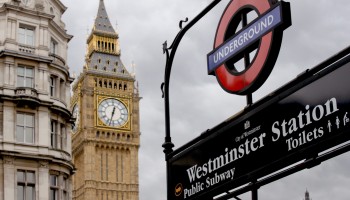The new charge should help Government’s efforts to prevent international criminals launder their money through shell companies registered in the U.K. The plan is to spend the money on new technology for law enforcement and for hiring more financial investigators.
These new resources would be used to target illicit financial flows estimated to be worth £100 billion ($130 billion) and help enact measures in the latest Economic Crime Plan unveiled by the National Crime Agency in July.
Robert Amaee, a financial crime and compliance lawyer who previously served as the Head of Anti-Corruption, Proceeds of Crime and International Assistance at the Serious Fraud Office, told OCCRP that we would have to await further details to determine whether this initiative will have a meaningful impact.
“More funding to combat financial crime is certainly to be welcomed, but much will depend on the details of this proposal; such as who will pay the levy, how much it will raise, what exactly it will fund, and whether it will be additional to existing funds or intended as a replacement,” he said.
The proposal was introduced by the newly appointed Chancellor of the Exchequer Rishi Sunak just days after the Guardian reported that he was part of a small team of hedge fund managers that were criticized by a US court for participating in a “corporate raiding deal”.
Civil society organizations such as Transparency International UK appear encouraged by the newly proposed measures.
“We welcome the Government’s commitment to intensify Britain’s efforts to tackle economic crime,” Rachel Davies, the chapter’s Head of Advocacy, told OCCRP.
She explained that virtually any corruption scandal in the world appears to have some financial connection to the UK or one of its offshore financial centers, whether this is through lawyers, estate agents, or even sectors such as the country’s educational institutions.
She added, however, that the UK should go further by enacting legislation that would criminalize any failures to prevent economic crimes, which she said, would serve “to ensure that money laundering committed on behalf of large corporates can be prosecuted.”






